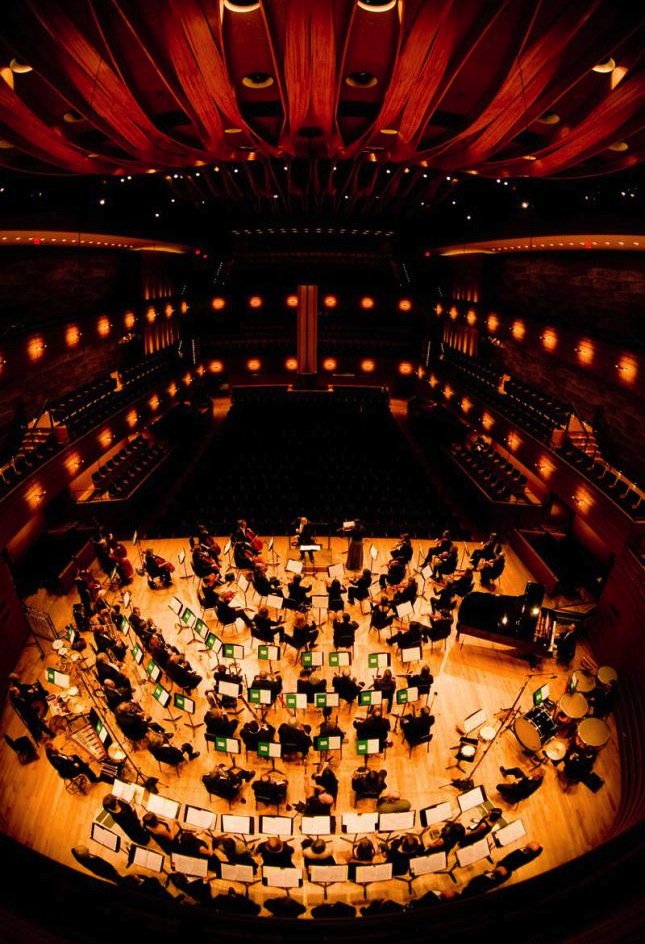
Thursday night’s concert presented by Esprit Orchestra in a buzzing Koerner Hall featured Claude Vivier’s Orion and a newly commissioned Phantom Suns by Paul Frehner, which served as an excellent lead-up to a 100th anniversary performance of Igor Stravinsky’s Le Sacre du Printemps as arranged by Jonathan McPhee for a reduced orchestra.
- PREVIEW | Soundstreams Celebrates Mandela’s Dreams In “Music Of The Rainbow Nation” - November 17, 2016
- Soundstreams’ “Encore” curates a cultural experience without bounds - October 16, 2014
- PREVIEW | Soundstreams opens season with loving tribute to Vivaldi in “The Seasons” - September 26, 2014

Vivier, a music iconoclast we can call our own, passed away in 1983 when he was only 34 years old, murdered in a Parisian apartment. Orion featured faint melodic motifs often presented with distortions, creating a vast, abstract soundscape.
With careful listening and following visual cues from musicians’ movements, there is in fact a lot more going on than first meets the ear. The trumpet solos and the agile percussion section cut and shaped the sonic textures emerging from the rest of the orchestra.
The first piece reminded me of a general rule I have for listening to music composed in the last century: Avoid following the motion of the baton and the nodding of the musicians’ heads too closely. The perceived pulse sets expectations which the composer often does not set out to fulfill, and the most touching passages can often get lost when visual context takes over.
There were many such magical moments in Frehner’s Phantom Suns. What stood out for me in the first movement were the incredibly long stretches of shifting sound. They created a rich atmosphere with understated sophistication.
Hearing theses shifts run through the full timbral range of the orchestra was like running luxurious fabric between your fingers.
The second movement was more angular, with rhythmic attacks on various instruments that gradually receded like echoes. Ryan Scott gave a particularly brilliant performance on the marimba while staying tucked away in the background.
The overall architecture of the whole piece did not hold together, in my opinion, and I had trouble staying connected to the music throughout the performance, which was stellar under the direction of Alex Pauk.
After the intermission came the much anticipated Rite of Spring by Stravinsky. Every time I hear this piece, I wonder which were the most offending passages during the opening night of the ballet in 1913. This work sounds rousing to our contemporary ears, which may actually enjoy discovering the overlapping rhythms that develop into a controlled frenzy.
This is one of those pieces where a musician could get hopelessly lost. I have heard many tales from young and seasoned musicians alike who wear the experience of performing Rite of Spring as a badge of honour, and perhaps rightly so.
The intensity of concentration of the Esprit Orchestra and conductor Alex Pauk has been well tuned over the many years of presenting contemporary works. Their performance of this classic was a testament to their commitment and passion to music that is not always easy to play or listen to — but if we hear it more often, we can grow to love it.
- PREVIEW | Soundstreams Celebrates Mandela’s Dreams In “Music Of The Rainbow Nation” - November 17, 2016
- Soundstreams’ “Encore” curates a cultural experience without bounds - October 16, 2014
- PREVIEW | Soundstreams opens season with loving tribute to Vivaldi in “The Seasons” - September 26, 2014



